-
 Bitcoin
Bitcoin $107,467.9126
1.26% -
 Ethereum
Ethereum $2,447.5288
-0.12% -
 Tether USDt
Tether USDt $1.0005
0.00% -
 XRP
XRP $2.1921
0.13% -
 BNB
BNB $647.2897
0.50% -
 Solana
Solana $144.8627
-0.37% -
 USDC
USDC $0.9996
-0.03% -
 TRON
TRON $0.2732
0.10% -
 Dogecoin
Dogecoin $0.1652
-0.18% -
 Cardano
Cardano $0.5700
-2.87% -
 Hyperliquid
Hyperliquid $37.0274
-1.81% -
 Bitcoin Cash
Bitcoin Cash $484.6957
0.19% -
 Sui
Sui $2.7354
-2.19% -
 Chainlink
Chainlink $13.1727
-1.49% -
 UNUS SED LEO
UNUS SED LEO $8.9978
-0.04% -
 Stellar
Stellar $0.2421
-2.33% -
 Avalanche
Avalanche $17.5633
-3.51% -
 Toncoin
Toncoin $2.8476
-1.94% -
 Shiba Inu
Shiba Inu $0.0...01166
-0.56% -
 Litecoin
Litecoin $85.1071
0.09% -
 Hedera
Hedera $0.1502
-2.96% -
 Monero
Monero $310.2774
-1.64% -
 Dai
Dai $0.9999
-0.01% -
 Polkadot
Polkadot $3.3584
-1.88% -
 Ethena USDe
Ethena USDe $1.0003
-0.04% -
 Bitget Token
Bitget Token $4.4443
2.90% -
 Pi
Pi $0.6242
14.04% -
 Uniswap
Uniswap $6.9774
-2.86% -
 Pepe
Pepe $0.0...09535
-5.05% -
 Aave
Aave $256.7574
-3.35%
How to make money trading Crypto.com contracts
To make money trading Crypto.com contracts, traders should carefully choose contracts, manage risk with stop-loss and take-profit orders, and monitor positions closely during volatile market conditions.
Nov 24, 2024 at 05:03 pm
How to Make Money Trading Crypto.com Contracts
Crypto.com is a leading cryptocurrency exchange that offers a wide range of trading options, including perpetual contracts. Futures contracts are a type of derivative that allows traders to speculate on the future price of an asset, in this case, a cryptocurrency.
Step 1: Choosing Which Crypto.com Contract To Trade
To make money trading Crypto.com contracts, traders need to have a clear understanding of the various contracts available and how they work. Crypto.com offers perpetual contracts on various underlying cryptocurrencies, including Bitcoin (BTC), Ethereum (ETH), Litecoin (LTC), and Ripple (XRP). Traders must carefully choose their contracts based on their trading style, risk tolerance, and market outlook.
Step 2: Opening A Perpetual Contract on Crypto.com
Once a trader has selected a contract, they can open a position by following these steps:
- Log into your Crypto.com account.
- Click on "Contracts" tab on the top navigation bar.
- Choose the desired contract from the list of available options.
- Select the trade size by entering the number of contracts you want to buy or sell.
- Set the leverage you want to use. Leverage allows you to trade with more capital than you actually have, increasing your potential profits but also your risks.
- Click on "Buy/Long" or "Sell/Short" to open your position.
Step 3: Managing Risk While Trading Perpetual Contracts
Perpetual contracts are leveraged products, which means they carry a higher level of risk than spot trading. However, traders can implement several risk management techniques to minimize potential losses:
- Set stop-loss orders: Stop-loss orders automatically close your position when the price reaches a predetermined level, preventing significant losses.
- Use take-profit orders: Take-profit orders automatically close your position when the price reaches a predetermined profit level, locking in your gains.
- Monitor your positions regularly: Monitor your open positions closely and adjust your strategy as needed, especially during volatile market conditions.
Step 4: Funding and Fees Associated with Perpetual Contracts
Perpetual contracts require traders to maintain a certain amount of funds in their trading account to cover potential losses. This is known as the "initial margin." Additionally, traders need to pay funding fees to keep their positions open. Funding fees are typically charged every 8 hours and can be positive or negative, depending on the market conditions and trader's position.
Step 5: Closing a Perpetual Contract Position
When a trader is ready to close their position, they can do so by placing an order in the opposite direction of their original trade. To close a long position, traders would place a sell order, and to close a short position, they would place a buy order. The position will be closed once the order is filled.
Disclaimer:info@kdj.com
The information provided is not trading advice. kdj.com does not assume any responsibility for any investments made based on the information provided in this article. Cryptocurrencies are highly volatile and it is highly recommended that you invest with caution after thorough research!
If you believe that the content used on this website infringes your copyright, please contact us immediately (info@kdj.com) and we will delete it promptly.
- Bitcoin Stagnation & Cooling Metrics: What's Next for BTC?
- 2025-06-26 14:51:53
- Pi Holders, Selling Early, and Pump Timing: What's the Deal?
- 2025-06-26 14:30:13
- Coinbase, Wrapped Tokens, Cardano & Litecoin: A New Era for DeFi?
- 2025-06-26 15:12:18
- Bitcoin, Fed Rate Cut, and the Altcoin Ascent: Navigating ETH, SOL, ADA, and the Meme Coin Mania
- 2025-06-26 14:51:54
- GameStop, Bitcoin, and Funding: A New York Minute on the Latest Moves
- 2025-06-26 15:15:53
- Cardano's Layer-2 Revolution: Unlocking DeFi Potential in the ADA Ecosystem
- 2025-06-26 15:20:16
Related knowledge
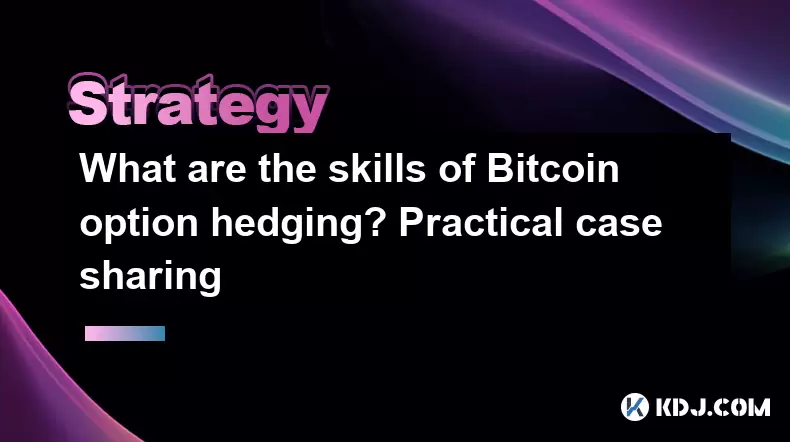
What are the skills of Bitcoin option hedging? Practical case sharing
Jun 24,2025 at 04:01pm
Understanding Bitcoin Option HedgingBitcoin option hedging is a risk management strategy used by traders and investors to protect their positions in the volatile cryptocurrency market. By using options, individuals can limit potential losses while retaining the opportunity for profit. In essence, it allows one to insulate against adverse price movements...
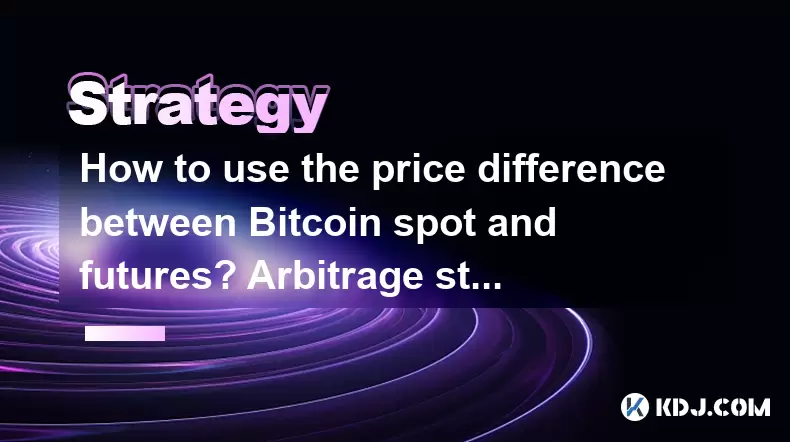
How to use the price difference between Bitcoin spot and futures? Arbitrage strategy
Jun 20,2025 at 02:56pm
Understanding Bitcoin Spot and Futures MarketsTo effectively leverage arbitrage opportunities between Bitcoin spot and futures markets, it's essential to understand the fundamental differences between these two types of markets. The spot market refers to the direct buying and selling of Bitcoin for immediate delivery at the current market price. In cont...
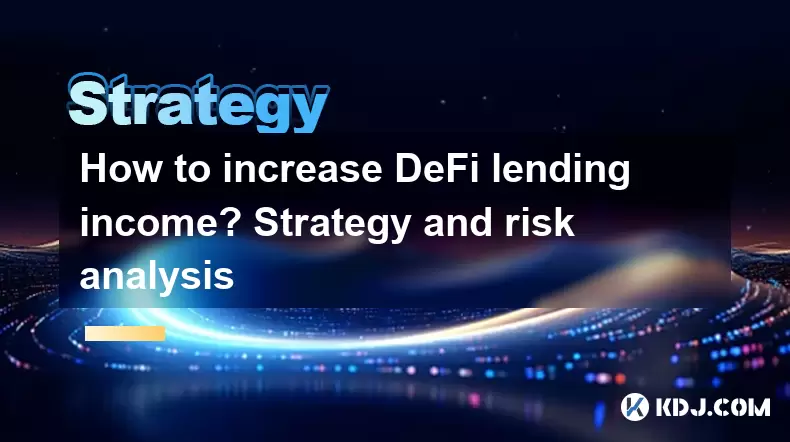
How to increase DeFi lending income? Strategy and risk analysis
Jun 24,2025 at 02:08pm
Understanding DeFi Lending and Its Income PotentialDeFi (Decentralized Finance) lending has emerged as a popular way to earn passive income in the cryptocurrency space. Unlike traditional banking systems, DeFi lending platforms allow users to lend their crypto assets directly to borrowers without intermediaries. The lenders earn interest based on the su...
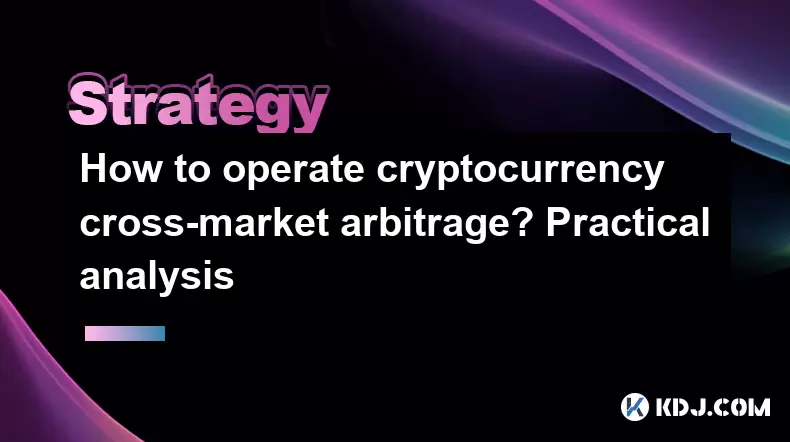
How to operate cryptocurrency cross-market arbitrage? Practical analysis
Jun 23,2025 at 04:01am
Understanding Cryptocurrency Cross-Market ArbitrageCryptocurrency cross-market arbitrage involves taking advantage of price differences for the same digital asset across different exchanges. The core idea is to buy low on one exchange and sell high on another, capturing the profit from the discrepancy. This strategy relies heavily on real-time market da...

How to make profits from high-frequency cryptocurrency trading? Sharing core skills
Jun 19,2025 at 05:07pm
Understanding High-Frequency Cryptocurrency TradingHigh-frequency trading (HFT) in the cryptocurrency market involves executing a large number of trades at extremely fast speeds, often within milliseconds. This method relies on small price discrepancies across exchanges or within a single exchange’s order book. Traders use complex algorithms and ultra-l...
What are the methods of cryptocurrency quantitative trading? Detailed analysis
Jun 22,2025 at 11:07pm
Understanding the Core of Cryptocurrency Quantitative TradingCryptocurrency quantitative trading refers to the use of mathematical models and algorithms to execute trades in the digital asset market. Unlike traditional discretionary trading, which relies heavily on human judgment, quantitative trading leverages data-driven strategies to identify profita...

What are the skills of Bitcoin option hedging? Practical case sharing
Jun 24,2025 at 04:01pm
Understanding Bitcoin Option HedgingBitcoin option hedging is a risk management strategy used by traders and investors to protect their positions in the volatile cryptocurrency market. By using options, individuals can limit potential losses while retaining the opportunity for profit. In essence, it allows one to insulate against adverse price movements...

How to use the price difference between Bitcoin spot and futures? Arbitrage strategy
Jun 20,2025 at 02:56pm
Understanding Bitcoin Spot and Futures MarketsTo effectively leverage arbitrage opportunities between Bitcoin spot and futures markets, it's essential to understand the fundamental differences between these two types of markets. The spot market refers to the direct buying and selling of Bitcoin for immediate delivery at the current market price. In cont...

How to increase DeFi lending income? Strategy and risk analysis
Jun 24,2025 at 02:08pm
Understanding DeFi Lending and Its Income PotentialDeFi (Decentralized Finance) lending has emerged as a popular way to earn passive income in the cryptocurrency space. Unlike traditional banking systems, DeFi lending platforms allow users to lend their crypto assets directly to borrowers without intermediaries. The lenders earn interest based on the su...

How to operate cryptocurrency cross-market arbitrage? Practical analysis
Jun 23,2025 at 04:01am
Understanding Cryptocurrency Cross-Market ArbitrageCryptocurrency cross-market arbitrage involves taking advantage of price differences for the same digital asset across different exchanges. The core idea is to buy low on one exchange and sell high on another, capturing the profit from the discrepancy. This strategy relies heavily on real-time market da...

How to make profits from high-frequency cryptocurrency trading? Sharing core skills
Jun 19,2025 at 05:07pm
Understanding High-Frequency Cryptocurrency TradingHigh-frequency trading (HFT) in the cryptocurrency market involves executing a large number of trades at extremely fast speeds, often within milliseconds. This method relies on small price discrepancies across exchanges or within a single exchange’s order book. Traders use complex algorithms and ultra-l...

What are the methods of cryptocurrency quantitative trading? Detailed analysis
Jun 22,2025 at 11:07pm
Understanding the Core of Cryptocurrency Quantitative TradingCryptocurrency quantitative trading refers to the use of mathematical models and algorithms to execute trades in the digital asset market. Unlike traditional discretionary trading, which relies heavily on human judgment, quantitative trading leverages data-driven strategies to identify profita...
See all articles




















